Is the life of a Catholic priest increasingly lonely?
- Published
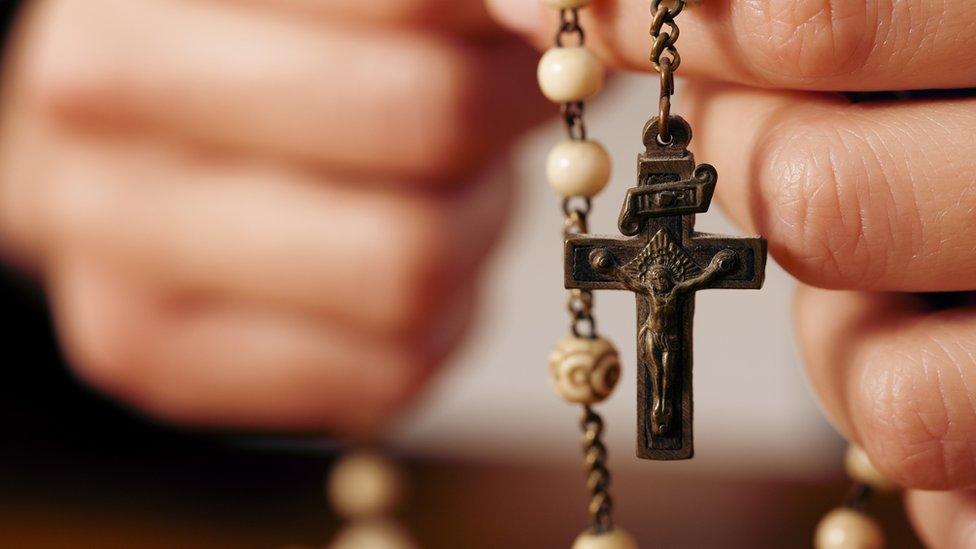
The Association of Catholic Priests says some clerics are at risk of feeling increasingly isolated
"You can feel like an island, or like you are in a bubble. There is that sense that you are missing something."
Even in the formative years of his childhood, Father Chris Ferguson felt his life would be devoted to God.
Growing up in Northern Ireland's second city, the calling to the priesthood came at the early age of 10.
Fr Chris was ordained at the age of 25 in 2002. He was the sole priest ordained that year in Northern Ireland, external.
In the two decades since, he has served parishes across his home diocese of Derry.
There are challenges daily: Parish life demands he is often most needed when parishioners face especially difficult or trying times, and when they are at their most vulnerable.
It's a working life that can take him "through an enormous range of emotions".
"There are days when it feels like a perfect storm," Fr Chris told BBC News NI.
"Some might feel the life of a priest is too busy to be lonely.
"But when you come home at night and close the door, you are very aware that you are there on your own.
"Pretty soon you realise there's a risk that if you are not anchored in your own relationships and your own prayer you can end up with a chronic loneliness at times."
Allow Facebook content?
This article contains content provided by Facebook. We ask for your permission before anything is loaded, as they may be using cookies and other technologies. You may want to read Meta’s Facebook cookie policy, external and privacy policy, external before accepting. To view this content choose ‘accept and continue’.
It is widely accepted that loneliness is part of the human condition. It is not confined to any specific walk of life.
But the Association of Catholic Priests, a body with about 1,000 members, believes the calling can carry an increased risk of social isolation.

'Even coming from a faith perspective, it's clear we are made to be in a relationship,' says Fr Chris
Fr Chris has a strong support network of family and friends.
But there is also a sense that something more is missing, something that can compound his sense of isolation.
"Even coming from a faith perspective, it's clear we are made to be in a relationship," he says.
"It's that sense of having someone to talk to, share your day with."
Diluting the priesthood?
Roman Catholic priests are required to abide by the rule of celibacy upon ordination. There are some exceptions, such as married Anglican ministers who convert.
In October 2019, bishops voted to allow married men to become priests in the Amazon region where there is a severe shortage of priests.
To move forward, it must be backed by Pope Francis. Critics say allowing priests to marry may dilute the unique character of the priesthood.
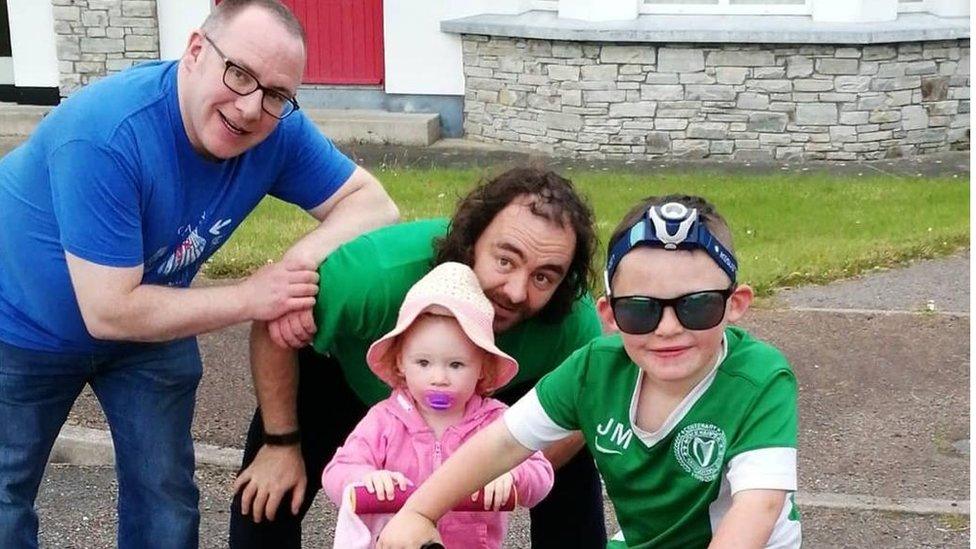
Fr Chris Ferguson is supported by a strong network of family and friends including his young niece and nephew.
Fr Chris says allowing priests to marry may not be the quick fix, and knows many voices must be heard in a church-wide conversation.
"Someone said to me recently: 'Would you like to be married?'
"Yes I would, I would love to be in a relationship. Every relationship needs work I know that and perhaps there's a sense far off fields are greener."
Fewer, older priests
There are a number of factors contributing to an increasing sense of isolation among the priesthood, according to the ACP.
Vocations have plummeted over the last three decades. The average age of a priest is now about 70.
The number of men being called to the priesthood has been dropping for a number of years,
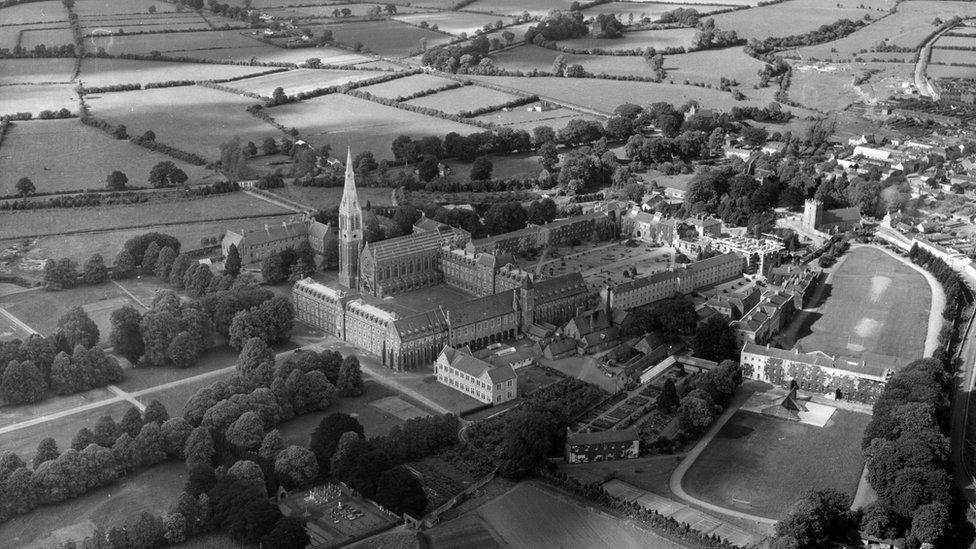
The seminary in Maynooth was designed to house 500 trainees priests (photo circa 1935)
Ireland's national seminary, St Patrick's College Maynooth, was home to more than 300 trainee priests when Pope John Paul II visited the building in 1979.
Within 20 years, their numbers had halved.
There's also a significant number of men who drop out in the early years of service.
Fr Chris says he knew at least 10 colleagues who had left the priesthood.
"The biggest reason is a desire to be in a relationship," he says.
The Church, he feels, is facing a stark if simple choice - allow for married priests or face a situation where there are no priests at all.
'Do the maths'
Fr Tim Hazelwood, a parish priest in County Cork who is a spokesman for the Association of Catholic Priests, says the burden on many priests "has become huge".
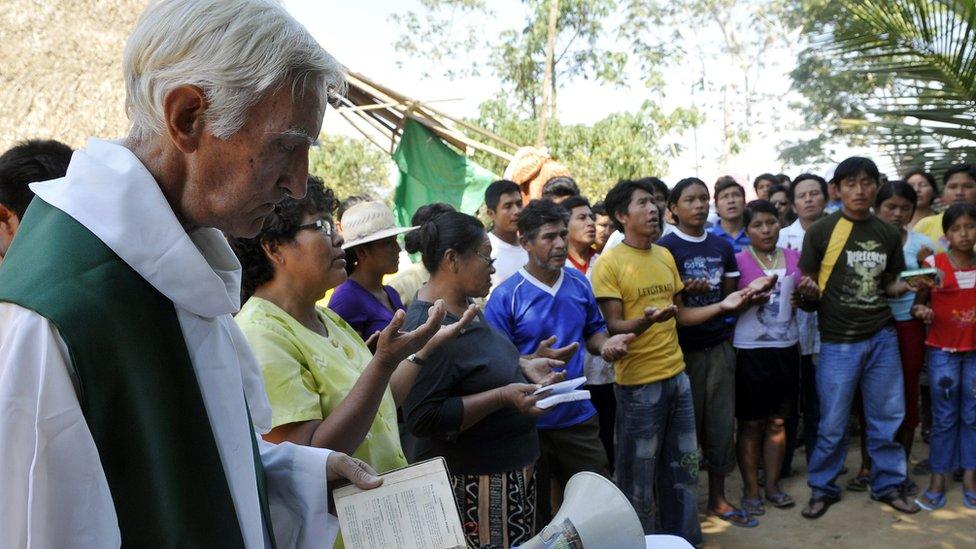
Some villages in South America are only able to see a priest once a year
"Many priests find it difficult to speak about those emotional things," he says.
"There are different levels of that feeling of increased isolation. We are working off the old model of priesthood in a changing world.
"It has become very difficult, most dioceses have no vocations coming, we have one student and we have 48 parishes.
"As the Americans say: 'Do the maths.'"
Fr Hazelwood says many priests were called to the priesthood at a time when the Church was held in a higher esteem. A changing society and the impact of the child sex abuse scandal has changed things.
"In some cases people may even look down on priests now, that has been very difficult especially for older men. It adds to loneliness," he says.
He says it is a "challenging time for priest and the priesthood".
There is, he adds, growing support among ACP members for ending the Church's celibacy requirement.
It would enrich the Church and go someway to addressing the difficulties of attracting and retaining priests, he says.
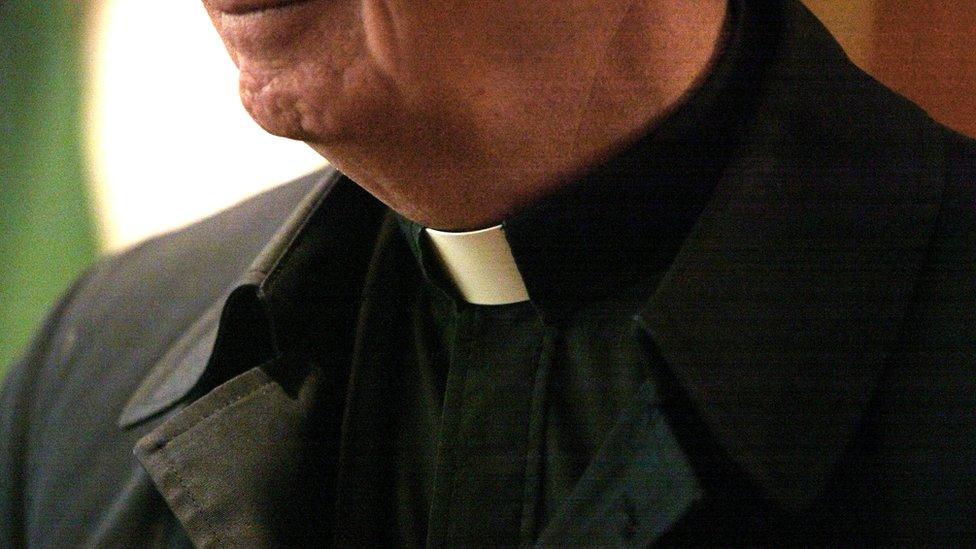
The average age of a priest in Ireland is now about 70
He, too, says he knows many men "who left to get married but who would love to minster".
"Yet we have the situation where a Church of Ireland or Church of England minster joins the Church he can minister with his wife, but if somebody falls in love they have to leave."
"The majority of our members would feel that way," he adds.
- Published6 October 2019

- Published1 October 2018
